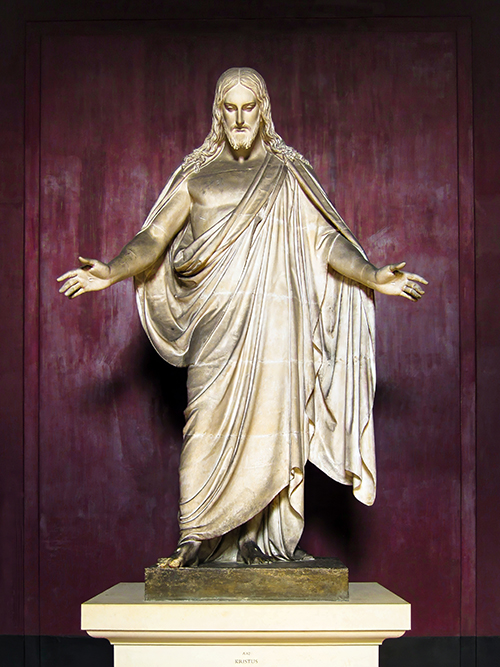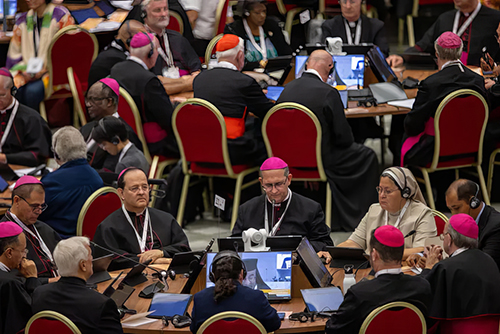
The Danish sculptor Bertel Thorvaldsen (1770 – 1844) was commissioned to sculpt a figure of Christ called Christus.
The original stands in Copenhagen Cathedral.
Perhaps this sculpture’s most frequently retold story centres on Thorvaldsen’s frustration in creating the proper position for Christ’s arms.
Thorvaldsen’s early sketches and models show Christ’s arms raised above his head in the blessing position.
Thorvaldsen had prepared the model with the outstretched arms raised above the head of the figure of Christ.
The framework used for the model could not sustain the weight of the clay, and the arms slumped during the night from the blessing position to the waist.
Upon seeing this new pose when he arrived the following day, Thorvaldsen quickly made it permanent.
Today, when you view the finished statue, the arms and hands are open and inviting.
This may well be an image for us to reflect on as we celebrate this feast of Christ the King.
Perhaps the most real blessing is a posture of open arms and hands, exclaiming, as the inscription at the base of the sculpture reads, “Kommer til mig” (“Come unto me”) with a reference to the Scripture verse from Matthew 11: 28



